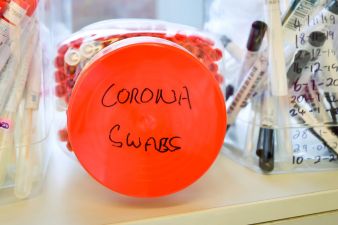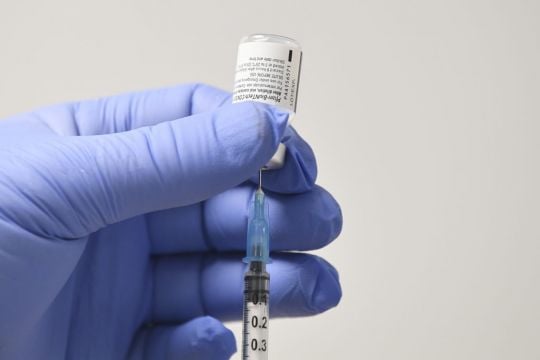Immunologist Professor Luke O’Neill has said he supports moves to give the Pfizer/BioNTech vaccine as the second dose for people who received AstraZeneca for their first dose.
It would be “a really good thing to do”, he told Newstalk’s Pat Kenny show as it could offer a better response and would speed up the vaccination programme.
Spain and Canada are already offering MRNA vaccines such as Pfizer and Moderna as the second dose, he said.
Using a different vaccine for the second dose would be beneficial for the over-60 cohort who were awaiting their second dose, he added.
Prof O’Neill pointed out that Nobel Prize winner Peter Doherty had recommended using Pfizer as a second dose to AstraZeneca as it gives an extra boost.
He added he would press for this practice to be used here, as there is "no reason not to mix and match".
Best protection
Fellow immunologist, Professor Kingston Mills echoed Prof O'Neill's comments, saying the use of the Pfizer vaccine for second doses would give people over 60 the best protection.
Speaking on RTÉ radio’s Today with Claire Byrne show, Prof Mills said in his estimation, that age group should get a booster with Pfizer as they were high-risk and should be given the best vaccine.
It was ridiculous those aged from 60-70 were given no choice but AstraZeneca, Prof Mills said.
Offering a second dose of the AstraZeneca vaccine to the over 60s in a shorter timeframe could also delay the rollout to those in the 40s age group, he warned.

Prof Mills said the National Immunisation Advisory Committee's (Niac) recommendation to reduce the gap between doses from 12 weeks to eight had come after studies in the UK showed that a single dose of the AstraZeneca vaccine was not going to prevent infection or even disease from the Delta variant (formerly known as the Indian variant) of the virus.
Delta was now the predominant variant in the UK, he said and increasing numbers had been detected in Ireland. Dr Cillian de Gascun, Director of the National Virus Reference Laboratory said 97 cases of the variant had been detected in the State up to Friday, increasing to 115 at the time of the National Publich Health Emergency Team's (Nphet) press briefing on Wednesday afternoon.
The Johnson and Johnson (Janssen) vaccine did not give more or less protection than other vaccines, Prof Mills said, but would likely require a booster down the road even though it was a one dose vaccine.
Prof Mills added another MRNA vaccine from CureVac was eagerly awaited and if it was approved, the EU had a deal for two billion doses over two years.







